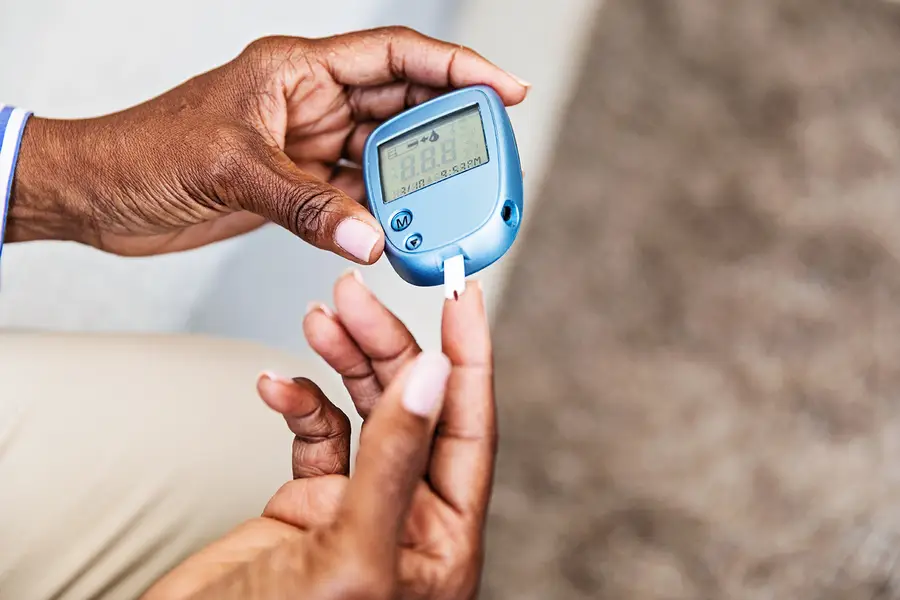
Diabetes is deadly, particularly in low- and middle-income countries (LMICs). Of the 1.5 million diabetes deaths in 2019, 84% occurred in LMICs, with nearly half before age 70. All too often, health systems fail to adequately serve people with diabetes. Challenges with routine testing, insulin access, and affordability all contribute to poor health outcomes, imposing a high cost on individuals, societies, and economies.
Appropriate diabetes management is critical. Changes to diet and physical activity can help people with diabetes to avoid both acute and chronic complications. Otherwise, diabetes can lead to a loss of sensory and motor function, poor circulation, poor wound healing, and eventual foot amputation. Diabetes is a leading cause of chronic kidney disease and end-stage renal disease, which requires dialysis or transplantation. Diabetes is also a risk factor for cardiovascular disease and numerous other noncommunicable diseases.
The human toll is mirrored by the healthcare costs of managing and treating diabetes and its complications. The global direct cost of healthcare expenditures attributable to diabetes was an estimated $760 billion in 2019, according to the IDF Diabetes Atlas. At global current treatment levels, the estimated 405.6 million individuals living with type 2 diabetes in 2018 utilized 516.1 million vials of insulin. Patients in LMICs spend an average of $35.40/year in the public sector and $95.71/year in the private sector on insulin, a high price especially to the poor. The healthcare costs grow exponentially when diabetes is not controlled. Poorly controlled foot infections lead to amputation for 11% of diabetes patients with foot complications, costing between $5,000 in LMICs to $35,000-$45,000 in high-income countries.
All of this has an impact on economic growth. In 2019, diabetes caused an estimated 639,000 deaths among those under age 70 in LMICs. These deaths amount to over 9.8 million years of life lost, which are lost productive years in which many of those individuals would have contributed to the workforce. The productivity impacts of diabetes begin long before death. As individuals suffer from complications from diabetes, such as loss of motor function, they are less productive while they are at work (an effect known as presenteeism) and are more likely to miss days of work (an effect known as absenteeism). As complications become more severe, such as blindness and amputation, individuals become unable to work.
RTI International’s studies have shown the benefits of diabetes interventions, especially when it comes to averting the serious complications of amputations and dialysis. For example, we conducted a decision analysis for one Pacific Island nation facing the high costs of sending diabetes patients in need of dialysis abroad for treatment. We have collaborated with the United Nations Development Programme (UNDP) and Pan American Health Organization (PAHO) to examine the health and economic burden of diabetes and the return on investment of a package of clinical diabetes interventions in two countries in the Latin America and Caribbean region. Clinical diabetes interventions include standard and intensive glycemic control and screening and treatment of retinopathy and neuropathy. While these interventions to treat diabetes do recoup their costs over the period of our analysis, they focus on the dramatic and costly end points of blindness and amputation. We could expect much higher returns on investment if we consider and include interventions that prevent the development of diabetes in the first place.
Given the enormous human toll and economic costs of diabetes, governments in LMICs must take action to improve health, promote economic growth, and make progress towards SDG Target 3.4 to reduce premature mortality from NCDs by one-third by 2030. This will require substantial investments in the face of very limited support for NCDs from global donors.
The year 2021 marks the 100th anniversary of the discovery of insulin. Fittingly, the WHO is organizing global partners to launch the Global Diabetes Compact to support local solutions to meet the healthcare needs of people living with diabetes, by reducing risk factors through population-based fiscal and policy measures, improving diagnosis and treatment, and scaling-up insulin and other diabetes medicines and devices.
Investment cases for health have a growing track record of impact for increasing awareness and spurring action on different NCDs and risk factors. Those that include diabetes, however, tend to include the costs of serious diabetes complications without broadening the analysis to explore the many pathways through which diabetes affects economic outcomes. Investment cases could be an even more powerful advocacy tool if they expanded to include primary and secondary prevention.
Whether promoting healthy lifestyle changes in clinical settings or population-level policies that target behavioral risk factors, diabetes prevention interventions can generate long-term benefits by averting a lifetime’s worth of healthcare costs and productivity losses. These interventions have the added benefit of preventing the development of other chronic diseases, greatly increasing their return on investment. Investment cases for diabetes prevention and care would help provide the needed evidence to catalyze national action, improving health outcomes for the millions of people around the world who live with the disease.
